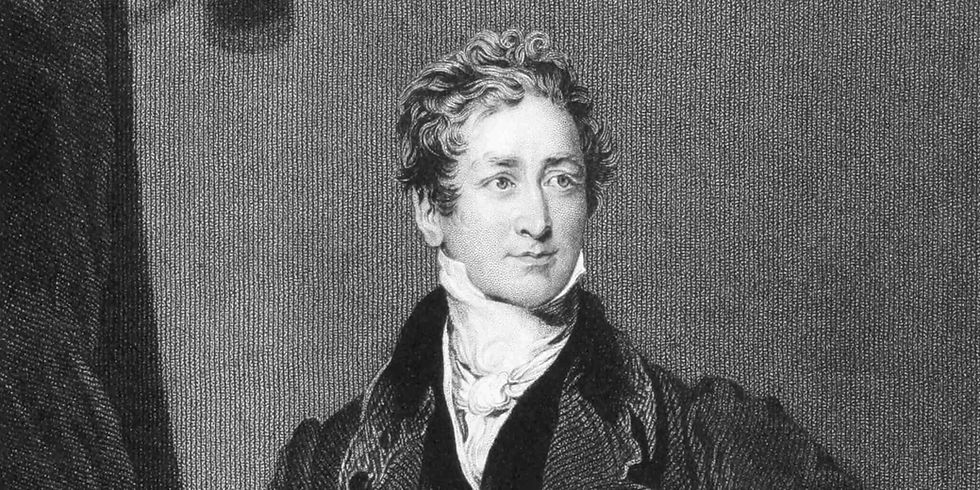What We Can Learn From Sir Robert Peel: Leadership through reform, responsibility, and rooted values
- verity858
- Sep 14, 2025
- 3 min read
Sir Robert Peel may not be the most headline-grabbing figure in British political history, but his leadership has left a lasting legacy on law, governance, and public service. As Prime Minister and founder of the Metropolitan Police, Peel demonstrated a rare combination of pragmatism, conviction, and quiet courage in the face of political storms.
He led with a strong sense of duty, even when it cost him popularity. In an age of rising social unrest and political transformation, Peel stood out not by dominating others, but by consistently putting country before party. His decisions helped shape modern Britain, and his principles still echo in leadership conversations today.
So what can we learn from the man behind the “Peelian principles”?

Who was Sir Robert Peel?
Born in 1788 into a wealthy manufacturing family, Robert Peel was educated at Harrow and Oxford before entering Parliament at just 21. He held several key government roles before becoming Prime Minister twice, from 1834 to 1835, and again from 1841 to 1846.
Peel is perhaps best known for establishing the Metropolitan Police in 1829. His vision was clear: a civilian force that would serve the public through consent, not coercion. This philosophy of policing was revolutionary at the time and remains the foundation of modern policing today.
As Prime Minister, he oversaw major economic and social reforms, including the controversial repeal of the Corn Laws. It was a move that split his party but demonstrated his deep commitment to public welfare over political loyalty.
Where he excelled
Peel’s leadership wasn’t loud or theatrical. It was steady, values-led, and grounded in principle. He was a leader who genuinely tried to do the right thing, even when it hurt.
1. Leading with principle, not popularity
The repeal of the Corn Laws, designed to lower food prices and help the poor during the Irish famine, lost Peel the support of his own Conservative Party. But he went ahead regardless, showing that real leadership sometimes means sacrificing your own position to serve others better.
2. Champion of institutional reform
Whether creating the police force or modernising the civil service, Peel understood the importance of long-term structural change. He was not interested in quick wins. His legacy lies in the systems he built that outlived him.
3. Measured and methodical decision-making
Peel approached challenges with logic, care, and an appetite for evidence. He listened, reflected, and often chose the harder path if it was the right one. In today’s fast-paced world, this kind of deliberation feels rare and valuable.

Where it wasn't perfect
Peel was not without flaws. His leadership sometimes lacked warmth, and his style could feel overly technocratic. He made bold decisions, but not always with clear communication or consensus.
1. Poor communicator in times of change
While principled, Peel often failed to bring others with him. His decision to repeal the Corn Laws was right, but his failure to engage his party resulted in a loss of trust and deep political divisions.
2. Uncompromising to the point of isolation
Peel’s moral clarity sometimes led to rigidity. He struggled to navigate the politics of persuasion, which left him vulnerable to rebellion within his own ranks.
3. Lacked charisma and relatability
Though respected, Peel was not adored. His serious demeanour and lack of personal warmth meant he inspired obedience more than emotional loyalty. Leaders today must consider both competence and connection.
Leadership lessons we can apply today
Peel’s story is a powerful reminder that reform is not always glamorous, and doing the right thing is rarely the easy path.
1. Real leadership is often unpopular
Peel lost power because he followed his conscience. But the legacy of his decisions, particularly on police reform and economic policy, outlasted the political cost. Leaders must be willing to choose principle over personal gain.
2. Systems matter
From the founding of the police to reshaping the economy, Peel’s impact was institutional. True leadership doesn’t just inspire change. It builds frameworks that allow that change to continue.
3. Don’t forget to bring people with you
Peel’s downfall wasn’t lack of vision, but lack of connection. Communication and collaboration matter, especially when leading through change. You can be right, but if you’re standing alone, progress can stall.
Final thought
Sir Robert Peel reshaped the nation not through fiery speeches or grand gestures, but through determination, discipline, and deep-rooted values. He reminds us that quiet leadership can be powerful, and that the decisions we make today can echo for generations.
So here’s your reflection: Are you leading to stay in power, or to leave a legacy?
If you’re ready to lead with conviction, my Leadership Unlocked programme helps leaders like you find clarity, courage, and consistency.
And if you're building stronger systems inside your business, my Talent Management Consultancy can help you put the right people and processes in place.




Comments